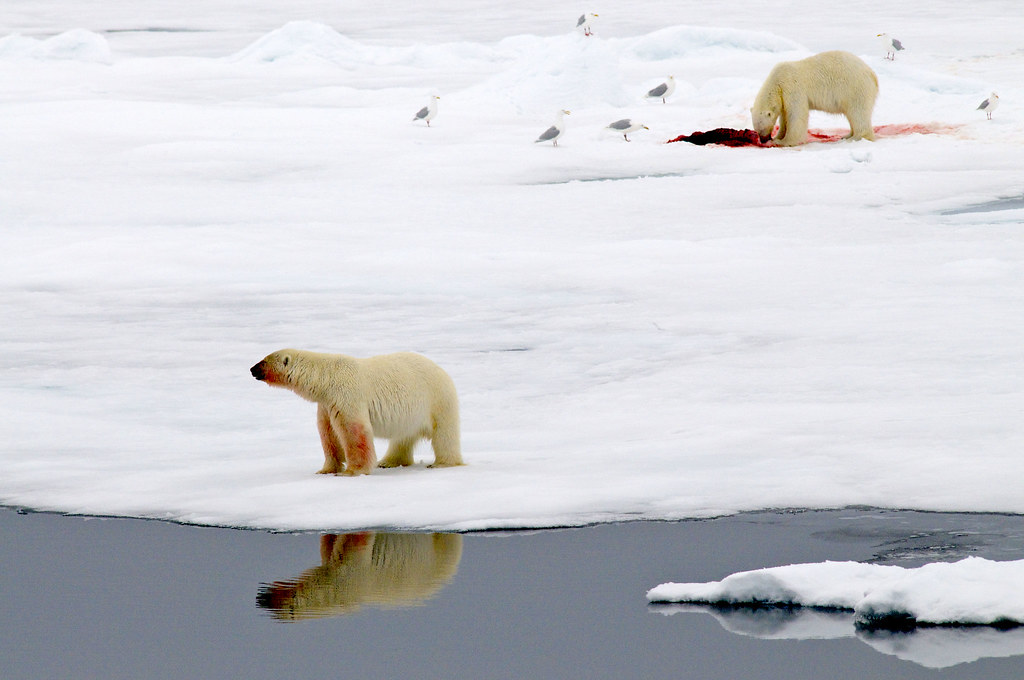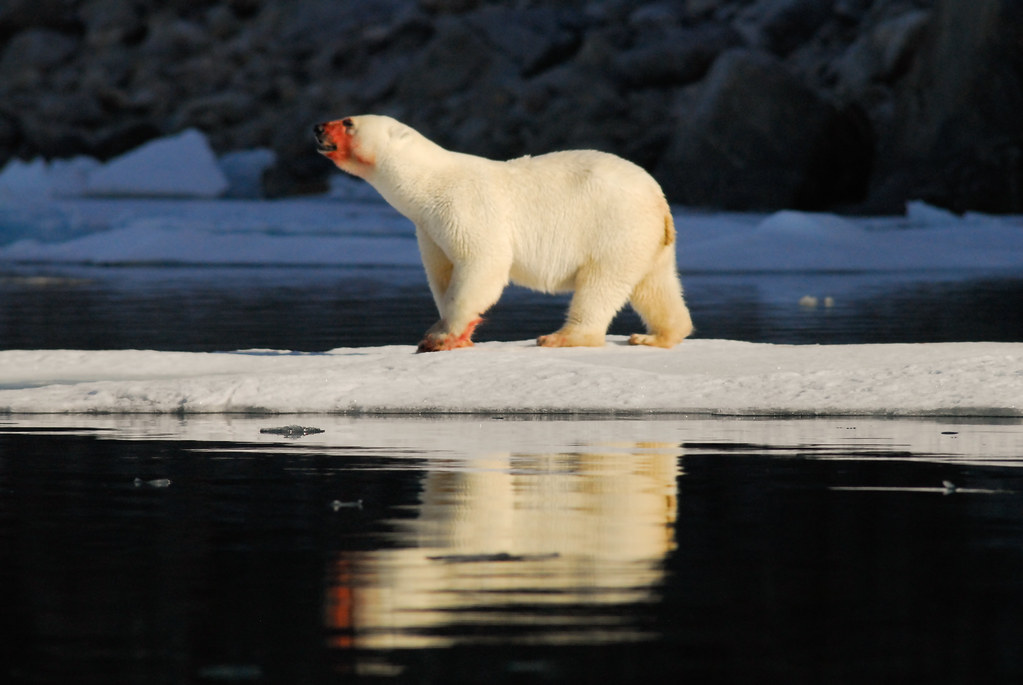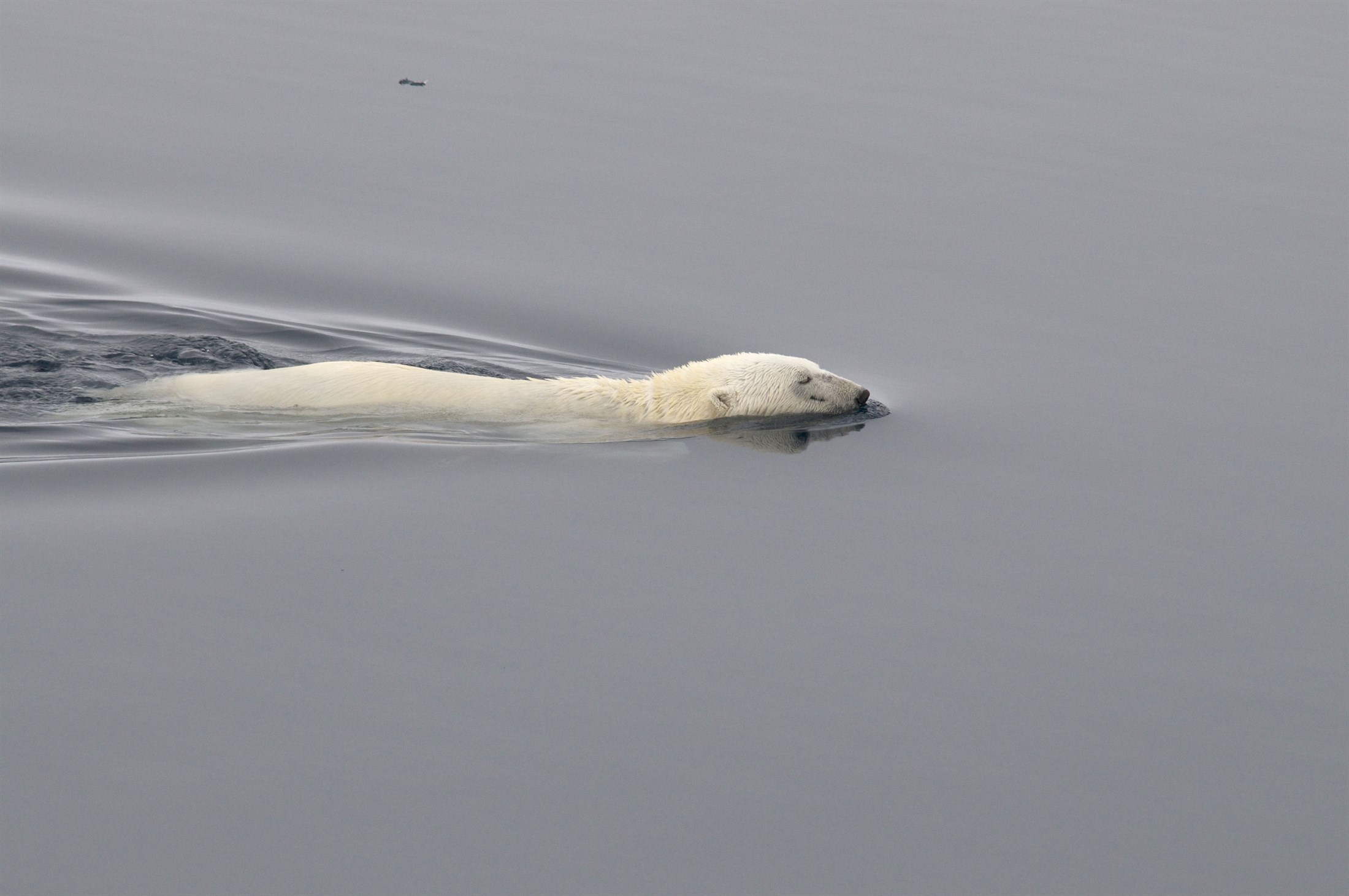At World Polar Bear Day 2022, thoughts cannot only go towards the Arctic home of this impressive sea mammal. Our attention needs to go to the presently culminating Russian war in Ukraine, as the entire world is seriously affected. The polar bear symbolizes the peaceful circum-Arctic environmental cooperation, which started during Cold War times in 1973 when five Arctic countries, including the Soviet Union, agreed on the common conservation of polar bears. 1991 the eight Arctic countries agreed on the Arctic Environmental Protection Strategy, and since 1996 worked together in the Arctic Council. They basically followed the vision of Gorbachev, who formulated in 1987 that the Arctic should become a “region of peace and environmental cooperation”. The polar bear agreement and the Arctic countries’ environmental and peaceful cooperation were world examples of success stories so far. How can they continue after Russia went to war against Ukraine and thereby caused its isolation from all the other Arctic countries and significant parts of the world? Or would it now be even more important to keep open as much as possible talking channels in the Arctic and not disconnect from the many friendships among scientists, politicians, organizations, and many others, which have been building up in the last three decades?
A specific area where the protection of polar bears functioned exceptionally well is Svalbard and the wider Northern Barents Sea. Here the population of polar bears has grown significantly since its total protection from hunting in 1973. Svalbard is also an example of how tourism supported nature conservation and protected areas. And Svalbard is also an example of where Russian and Norwegian communities live peacefully together and where many friendships have been established. Conservation-tourism of Svalbard has had the potential to be copied by the neighboring Franz Josef Land/Russian Arctic National Park. Will these links now be cut off, and military sites on Franz Josef Land threaten the (Western) world? Or is there a chance that tourism interested in polar bears and conservation can play a further role in peaceful cooperation?
Last but not least, is there a connection from polar bears being threatened by climate change to the possible future implications of the present Russian war in Ukraine: The EU and other countries now have been heavily provoked by Russia to invest massively into the independence of fossil energy. Suppose this would lead to more drastic cuts in climate emissions than ever thought; it would not only save polar bears.
More pictures of polar bears you can find here: https://bit.ly/35zznO3





